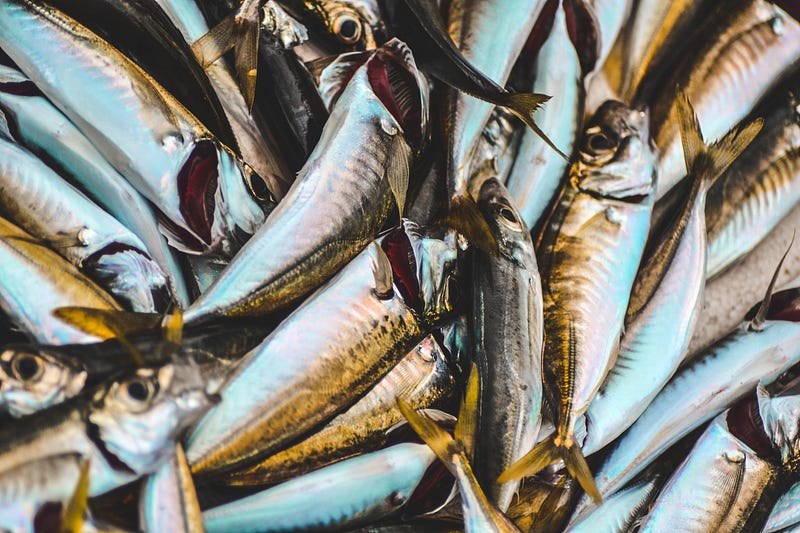The Impending Crisis: Are We Depleting Our Fish Stocks?
Written on
Chapter 1: The Fishing Power Paradox
Despite remarkable advancements in fishing technology, the amount of fish being caught remains stagnant.
This section will highlight the paradox of increased fishing efficiency versus decreasing catch rates.
Section 1.1: Technological Advancements in Fishing
Modern fishing fleets have unprecedented tools at their disposal, including GPS, sonar, and echo-sounders, enhancing their ability to locate fish. Research indicates that the efficiency of fishing fleets is doubling approximately every 35 years, translating to an annual increase of 2-4%.
This means that today, just ten vessels can catch as many fish as twenty did in 1984, or forty boats did in 1950. Despite this, the average catch per fleet has not changed significantly, and in some cases, it has even declined in specific marine regions.

Section 1.2: The Limits of Current Policies
New regulations have attempted to control the number of fishing vessels operating in many countries, yet these measures often fail to address the underlying issue of overfishing.
Policies frequently concentrate on the quantity of boats rather than the actual fishing power each vessel possesses. While many studies evaluate immediate factors like the number of boats, fish caught, and personnel, they overlook the increasing fishing capabilities over time.
This situation can be likened to a person consistently paying rent without realizing it has gradually increased — they may eventually find themselves in financial distress despite making the same monthly payments.
There’s a concerning trend of increasing fishing power in Southeast Asia, where many fishermen are transitioning from traditional methods to more mechanized approaches. This shift is exacerbating the depletion of fish stocks.
Chapter 2: The Tragedy of the Commons
The "tragedy of the commons" illustrates a scenario where shared resources are overexploited due to individual self-interest. First articulated by a British economist in 1833 and popularized later, this concept highlights how collective resource depletion occurs when individuals prioritize their gains.
Currently, 31% of fish species are overfished, while 58% are fished at their maximum sustainable levels. Each fisherman benefits from catching more fish, leading to a cycle of overfishing and resource depletion.
Current research suggests that if fishing practices do not change, we may face a future devoid of fish. A 2006 study analyzing 7,800 fish species predicted that if current fishing rates persist, all species could collapse by 2050 — a timeline that could accelerate with increasing fishing power.

Section 2.1: Possible Solutions to Overfishing
Several strategies have been proposed to mitigate overfishing, with some evidence suggesting they could effectively slow or even reverse the trend.
Implementing rights-based management in fisheries allows fishermen to own a share of the fish stock, providing an incentive for sustainable practices rather than short-term exploitation. This approach, known as "catch shares" in the United States, has been shown to reduce overfishing by up to 60% in certain cases.
Aquaculture, or fish farming, presents another potential solution, provided it is executed sustainably. Currently, around half of all seafood consumed is farmed, but many aquaculture operations rely on wild-caught fish for feed. It takes about three tons of forage fish to produce one ton of farmed salmon, raising concerns about sustainability.
Enhancing water circulation, opting for herbivorous species, and utilizing plant-based feeds can improve aquaculture sustainability, alleviating some pressure on our oceans.
However, without significant policy changes regarding wild-caught fish, the increasing efficiency and capability of fishing vessels may lead many species to the brink of extinction. We cannot continue to enhance the power of our fishing fleets without considering the consequences — soon, there may be no fish left for these advanced technologies to find.
Sam Westreich, holding a PhD in genetics, currently works in a bioinformatics startup in Silicon Valley. Follow him on Medium or on Twitter at @swestreich for more insights.
Have a question about science? Feel free to comment with suggestions for future topics. Also, check out this related story:
How Does a 1,200 Pound Cow Get Enough Protein?
Everything you learned about cows in childhood may be misleading.
Chapter 3: Understanding the Crisis
The first video titled "Are We Running Out Of Fish? | SAYS In A Nutshell" explores the pressing issue of fish stock depletion, emphasizing current fishing trends and technologies.
The second video "The Ocean Is Running Out of Fish. Here's the Alarming Math." delves into the statistical realities of overfishing and its potential future implications.